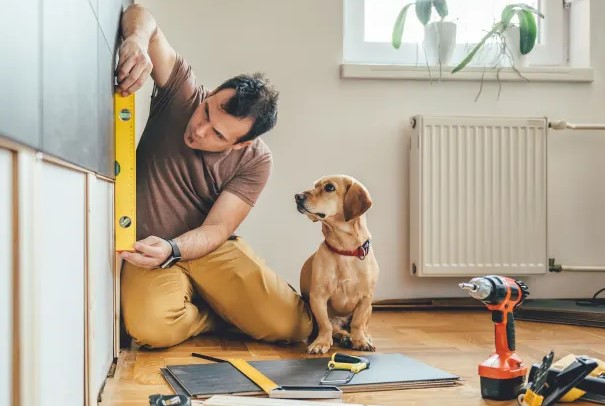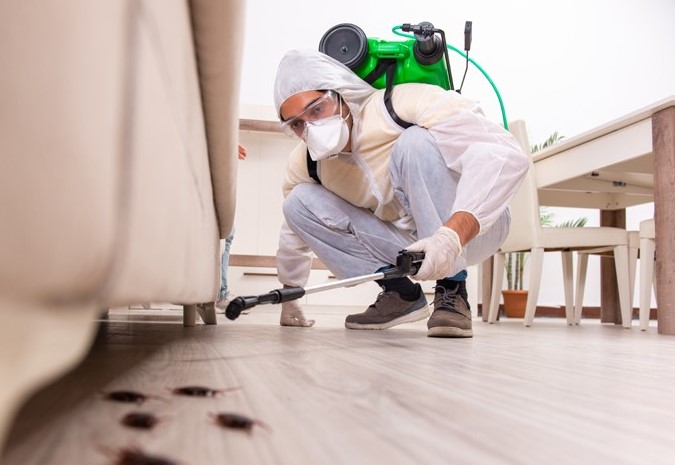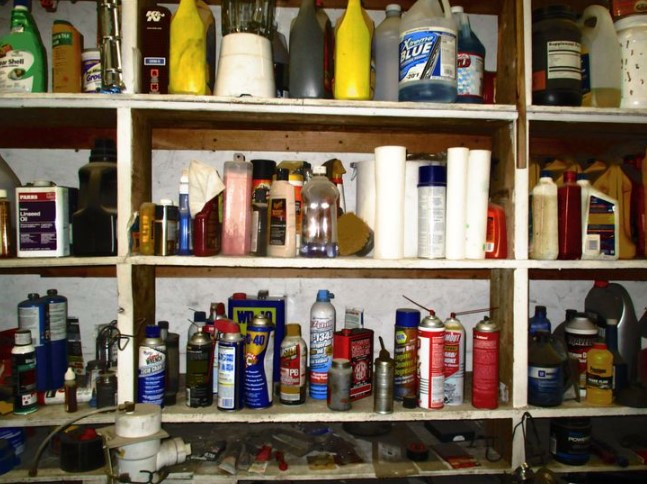
Home Maintenance: Keeping Your House in Top Shape
Introduction
Welcome to our comprehensive guide on home maintenance. In this article, we will cover essential tips, tricks, and strategies to help you keep your house in top shape. Regular home maintenance is crucial for preserving the structural integrity, functionality, and aesthetics of your property. By investing time and effort into maintaining your home, you can save money in the long run and ensure a comfortable living environment for you and your family. So let’s dive into the world of home maintenance and learn how to take care of your cherished abode.
The Importance of Home Maintenance
Home maintenance is a critical aspect of homeownership. By proactively addressing maintenance tasks, you can prevent small issues from turning into major problems, ultimately saving you both time and money. Neglecting maintenance can lead to costly repairs, reduced property value, and potential safety hazards. Regular maintenance also helps prolong the lifespan of your home’s components and systems, ensuring that they operate efficiently. So, whether you’re a new homeowner or have lived in your house for years, it’s essential to prioritize home maintenance to protect your investment and maintain a comfortable living environment.
Exterior Maintenance
Roof Maintenance
Your roof is one of the most crucial components of your home’s exterior. It protects you from the elements and plays a vital role in maintaining structural integrity. Regular roof maintenance can extend its lifespan and prevent leaks, water damage, and other issues. Inspect your roof annually and look for signs of damage, such as missing or cracked shingles, sagging areas, or debris buildup. Additionally, ensure that your attic has proper insulation and ventilation to prevent moisture buildup.
Gutter Maintenance
Gutters play a significant role in directing water away from your home’s foundation. Clogged or damaged gutters can lead to water pooling near the foundation, causing structural damage and basement flooding. Clean your gutters at least twice a year, removing leaves, twigs, and other debris. Ensure that the gutters are securely attached and sloped correctly for proper water flow. Consider installing gutter guards to reduce the frequency of cleaning and prevent clogs.
Siding Maintenance
The siding of your home not only enhances its curb appeal but also protects it from the elements. Regular siding maintenance can help prevent moisture infiltration, mold growth, and rot. Clean your siding annually using a mild detergent and a soft brush or sponge. Inspect for any signs of damage, such as cracks, warping, or loose pieces, and repair or replace as necessary. Consider applying a fresh coat of paint or stain to maintain its appearance and protect the material.
Driveway and Walkway Maintenance
Your driveway and walkways are subjected to daily wear and tear, including exposure to the elements and heavy foot and vehicle traffic. Regular maintenance can help prevent cracks, potholes, and deterioration. Sweep away debris regularly and clean any oil or grease stains promptly. Seal your driveway and walkways every few years to protect against water penetration and extend their lifespan. Repair any cracks or potholes promptly to prevent further damage.
Interior Maintenance
Plumbing Maintenance
Proper plumbing maintenance is crucial for preventing leaks, water damage, and costly repairs. Inspect your plumbing system regularly, checking for leaks, drips, or unusual noises. Test your faucets, showers, and toilets for proper functionality. Ensure that the water pressure is within the recommended range. Consider installing water-saving fixtures to conserve water and reduce utility bills. If you notice any issues, contact a professional plumber to address them promptly.
Electrical Maintenance
Maintaining a safe and functional electrical system is essential for your home’s safety. Regular electrical maintenance can help identify potential hazards and prevent electrical fires. Inspect your electrical panel to ensure it’s in good condition and free from signs of damage or overheating. Test your outlets and switches for proper functioning, and replace any faulty ones. Consider hiring a licensed electrician to perform a thorough electrical inspection every few years.
HVAC Maintenance
Your heating, ventilation, and air conditioning (HVAC) system plays a vital role in maintaining a comfortable indoor environment. Regular HVAC maintenance can improve energy efficiency, prolong system lifespan, and ensure optimal performance. Change your air filters every one to three months, depending on the manufacturer’s recommendation. Schedule professional HVAC maintenance annually, including system cleaning, lubrication, and inspection. Keep the outdoor unit free from debris and vegetation.
Flooring Maintenance
Proper maintenance of your flooring enhances its longevity and keeps it looking its best. Different flooring types require specific care, so be sure to follow the manufacturer’s guidelines. Regularly sweep or vacuum your floors to remove dirt and debris that can cause scratches. Clean spills promptly to prevent staining. Use appropriate cleaning products for your specific flooring material, whether it’s hardwood, tile, carpet, or laminate.
Landscaping and Outdoor Maintenance
Lawn Maintenance
A well-maintained lawn adds beauty to your home’s exterior and creates a welcoming ambiance. Regular lawn maintenance involves mowing, watering, fertilizing, and weed control. Set your mower blades to the appropriate height and mow the lawn regularly to promote healthy growth. Water your lawn deeply and infrequently to encourage deep root development. Apply fertilizer according to the recommended schedule and address weed issues promptly to prevent them from spreading.
Garden Maintenance
If you have a garden or landscaping beds, regular maintenance is essential for healthy plant growth and aesthetics. Weed your garden regularly to prevent competition for nutrients and water. Prune shrubs and trees to maintain their shape and promote healthy growth. Mulch the garden beds to suppress weeds and retain moisture. Monitor your plants for signs of pests or diseases and take appropriate action to prevent damage.
Patio and Deck Maintenance
Outdoor spaces like patios and decks provide excellent opportunities for relaxation and entertainment. Regular maintenance keeps them safe, functional, and visually appealing. Sweep away debris regularly and clean with mild detergent and water. Inspect for any signs of damage, such as loose boards or railings, and repair or replace as necessary. Apply a fresh coat of stain or sealant every few years to protect against moisture and UV damage.
Pool Maintenance
If you have a swimming pool, proper maintenance is vital for water clarity, hygiene, and safety. Regularly test the water chemistry and adjust the pH and chlorine levels as needed. Skim the surface to remove debris, and vacuum the pool to eliminate dirt and leaves. Clean the pool filter regularly and backwash as necessary. Inspect the pool equipment for any leaks or malfunctions and address them promptly. Follow all safety guidelines for pool operation and ensure proper fencing and signage.
Safety and Security Measures
Smoke Detector Maintenance
Smoke detectors are critical for early fire detection and saving lives. Test your smoke detectors monthly and replace batteries at least once a year. If your smoke detectors are more than ten years old, consider replacing them with newer models for improved performance and reliability. Clean the detectors regularly to remove dust or debris that can affect their sensitivity.
Carbon Monoxide Detector Maintenance
Carbon monoxide (CO) is a silent killer, and a functioning CO detector is essential for your family’s safety. Test your CO detectors regularly and replace batteries as needed. If a CO detector goes off, evacuate your home immediately and contact emergency services. Have your fuel-burning appliances, such as furnaces and water heaters, inspected annually to ensure they’re operating safely.
Security System Maintenance
If you have a security system installed, proper maintenance is necessary to keep it effective. Test your security system regularly to ensure all sensors, alarms, and cameras are working correctly. Replace batteries in your security system components as recommended by the manufacturer. Keep the security system’s control panel and software up to date for optimal performance.
Fire Extinguisher Maintenance
Having a fire extinguisher readily available can help you quickly respond to small fires and prevent them from spreading. Check your fire extinguisher’s pressure gauge regularly to ensure it’s in the green zone. Verify that the safety pin is intact and the nozzle is clear of any obstructions. If the fire extinguisher is expired or has been discharged, replace it immediately.
Energy Efficiency
Insulation Maintenance
Proper insulation helps regulate temperature, improve energy efficiency, and reduce utility costs. Inspect your home’s insulation, particularly in the attic and walls, for any signs of damage or settling. Add insulation as needed to maintain the recommended R-value for your climate zone. Seal any air leaks around windows, doors, and electrical outlets to prevent drafts and energy loss.
Window and Door Maintenance
Windows and doors are potential sources of air leaks and energy loss. Inspect the weatherstripping around windows and doors and replace it if damaged or worn out. Caulk any gaps or cracks around window frames and door jambs to seal them. Consider upgrading to energy-efficient windows and doors to improve insulation and reduce heat transfer.
Appliance Maintenance
Appliances, such as refrigerators, dishwashers, and washing machines, contribute to your home’s energy consumption. Follow the manufacturer’s maintenance guidelines for each appliance. Clean or replace filters regularly to ensure optimal performance. Check and clean the coils of your refrigerator to improve efficiency. Use energy-saving settings and consider upgrading to energy-efficient appliances when it’s time for replacements.
Lighting Maintenance
Proper lighting maintenance helps maximize energy efficiency and prolong the lifespan of your light fixtures and bulbs. Replace traditional incandescent bulbs with energy-efficient LED bulbs. Clean light fixtures regularly to remove dust and dirt that can reduce brightness. Turn off lights when not in use, and consider installing motion sensors or timers to automate lighting control.
Frequently Asked Questions
FAQ 1: What is the recommended frequency for home maintenance?
Home maintenance should be performed on a regular basis. Most tasks can be divided into monthly, quarterly, biannual, and annual categories. Some tasks, like changing air filters or testing smoke detectors, can be done monthly. Others, like gutter cleaning or HVAC maintenance, may be performed quarterly or biannually. Annual tasks may include roof inspections, sealing driveways, and landscaping maintenance.
FAQ 2: How can I prevent mold growth in my home?
To prevent mold growth, ensure proper ventilation and humidity control in your home. Use exhaust fans in bathrooms and kitchens to remove excess moisture. Repair any leaks promptly, whether it’s a plumbing issue or a roof leak. Clean and dry water-damaged areas within 48 hours. Monitor humidity levels and use dehumidifiers if necessary. Regularly clean and disinfect areas prone to mold, such as bathrooms and basements.
FAQ 3: What are some signs of electrical problems in a house?
Signs of electrical problems may include frequent circuit breaker trips, flickering lights, burning smells, sparking outlets, or warm electrical panels. Dimming or buzzing lights can also indicate underlying issues. If you experience any of these symptoms, it’s crucial to contact a licensed electrician to inspect your electrical system and address any potential hazards.
FAQ 4: How often should I clean my gutters?
Gutters should be cleaned at least twice a year, typically in the spring and fall. However, the frequency may vary depending on your location and the surrounding vegetation. If you have many trees near your home, you may need to clean your gutters more frequently to prevent clogs and water damage.
FAQ 5: Can I perform HVAC maintenance myself, or should I hire a professional?
While there are some HVAC maintenance tasks you can do yourself, such as changing air filters, more complex maintenance should be performed by a professional. HVAC technicians have the knowledge and tools to perform thorough inspections, cleanings, and repairs. Hiring a professional ensures that your HVAC system is properly maintained and operating at its best.
FAQ 6: How often should I test my smoke detectors?
Smoke detectors should be tested monthly to ensure they are functioning correctly. Press the test button on each detector and listen for the alarm sound. If the alarm doesn’t sound, replace the batteries or the entire smoke detector if necessary.
Conclusion
Home maintenance is a vital aspect of homeownership that should never be overlooked. By implementing a regular maintenance routine, you can protect your investment, maintain a comfortable living environment, and prevent costly repairs. From exterior maintenance to interior upkeep, landscaping to energy efficiency, every aspect of your home requires attention and care. Remember to follow manufacturer guidelines, seek professional assistance when needed, and address issues promptly to ensure a safe, functional, and well-maintained home for years to come.
Partner Site : Computer Technology, Health And Wellness, Addiction Treatment, Home Maintenance, Home Wine, Healthcare Information, Car Accident, Food Recipes, E-Sports News, Floor Care Advice




